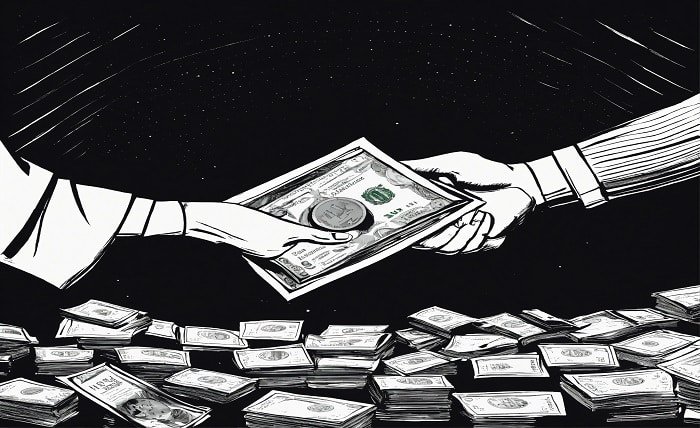
Introduction
In the realm of international trade, a monetary exchange system plays a pivotal role in facilitating transactions between nations. From ancient bartering to modern currency exchanges, the evolution of trade mechanisms underscores the necessity of a structured system. This article delves into why a monetary exchange system is indispensable for international trade, elucidating its functions and importance in fostering economic relationships across borders.
Facilitating Transactions
A monetary exchange system is essential for international trade because it streamlines transactions between parties involved. Whether it’s goods, services, or investments, the system provides a common medium of exchange, eliminating the need for cumbersome bartering processes. By standardizing currencies and exchange rates, it enhances efficiency and transparency in trade dealings.
Mitigating Risks
The presence of a robust monetary exchange system mitigates risks inherent in international trade. Fluctuating exchange rates, currency devaluation, and geopolitical uncertainties pose significant challenges to traders. However, a structured exchange mechanism provides stability, enabling businesses to hedge against currency risks through various financial instruments.
Promoting Price Stability
One of the crucial reasons why a monetary exchange system is necessary for international trade is its role in promoting price stability. By establishing stable exchange rates and monetary policies, it helps control inflationary pressures and ensures price predictability for imported and exported goods. This stability fosters confidence among traders and investors, facilitating long-term economic growth.
Fostering Economic Growth
A well-functioning monetary exchange system is a catalyst for economic growth on a global scale. By facilitating trade flows and capital movements, it promotes market integration and resource allocation efficiency. Moreover, it encourages foreign investment and technology transfer, driving productivity enhancements and fostering innovation across borders.
Enhancing Financial Integration
In today’s interconnected world, financial integration is paramount for sustainable economic development. A monetary exchange system enables seamless financial transactions, including cross-border payments, capital flows, and foreign exchange operations. This integration enhances liquidity, diversifies investment opportunities, and strengthens financial markets worldwide.
Supporting Trade Balances
Maintaining balanced trade relationships is crucial for economic stability and sustainable growth. A monetary exchange system facilitates the adjustment of trade imbalances by influencing exchange rates and capital flows. Through mechanisms such as currency devaluation or appreciation, it helps address trade deficits and surpluses, ensuring equilibrium in international trade.
Enabling International Investments
International investments play a vital role in driving economic development and fostering global prosperity. A monetary exchange system provides the necessary infrastructure and regulations for investors to participate in foreign markets. It facilitates portfolio diversification, risk management, and capital allocation, unlocking opportunities for wealth creation and expansion.
Strengthening Global Trade Governance
Effective global trade governance requires a framework that governs currency exchange and financial transactions. A monetary exchange system, backed by international institutions like central banks and monetary authorities, establishes rules and protocols for trade conduct. It fosters cooperation, resolves disputes, and ensures adherence to fair trade practices among nations.
Facilitating Economic Recovery
During times of economic turmoil or recession, a robust monetary exchange system plays a pivotal role in facilitating recovery efforts. Through coordinated monetary policies and exchange rate mechanisms, it stabilizes financial markets, restores investor confidence, and stimulates economic activity. By providing liquidity and credit support, it aids businesses and governments in overcoming financial challenges.
Cultivating Trust and Confidence
Last but not least, a monetary exchange system fosters trust and confidence among trading partners and investors. By providing a reliable medium of exchange and enforcing transparency in financial transactions, it enhances credibility and reduces transactional risks. This trust forms the bedrock of sustainable economic relationships, laying the foundation for continued growth and prosperity.
Conclusion
A monetary exchange system is indispensable for international trade due to its multifaceted roles in facilitating transactions, mitigating risks, and fostering economic growth. From promoting price stability to enabling global investments, its significance cannot be overstated in today’s interconnected world. As trade continues to evolve, the resilience and efficiency of such systems will remain paramount in driving global prosperity.
FAQ
1. Why is a monetary exchange system necessary for international trade?
A monetary exchange system provides a common medium of exchange, streamlining transactions and reducing risks associated with currency fluctuations.
2. How does a monetary exchange system promote economic growth?
By facilitating trade flows, enhancing financial integration, and supporting international investments, it fosters market efficiency and resource allocation, driving economic expansion.
3. What role does a monetary exchange system play in trade balances?
A monetary exchange system helps address trade imbalances by influencing exchange rates and capital flows, ensuring equilibrium in international trade.
4. How does a monetary exchange system contribute to global trade governance?
Backed by international institutions, a monetary exchange system establishes rules and protocols for trade conduct, fostering cooperation and resolving disputes among nations.
5. What are the benefits of a robust monetary exchange system during economic downturns?
During recessions or economic crises, a robust monetary exchange system stabilizes financial markets, restores investor confidence, and facilitates recovery efforts through coordinated monetary policies and liquidity support.





